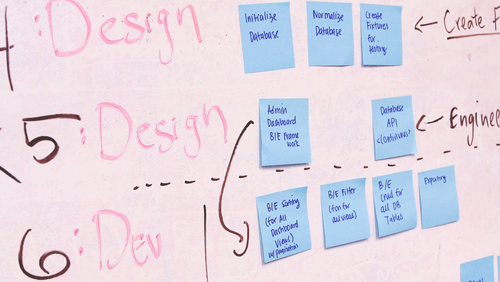Date: |
07 May 2024, 8.30AM – 4.30PM |
duration: |
8 hrs |
Venue: |
tbc - Bay of Plenty |
Address: |
Tauranga |
CPD hours: |
8 hrs |
Cost: |
|
Urban Stormwater Management is no longer an engineering led drainage design activity. It is now a multi-disciplinary activity, achieving engineering, urban design, ecological, social and economic outcomes, all within a planning framework.
This course introduces how urban stormwater has changed and many of the key elements and interactions involved in modern stormwater management and design including:
- Hydrology
- Hydraulics
- Drainage
- Treatment
- Low Impact Design.
References to useful sources of information for stormwater management design will also be provided.
Learning Outcomes
Delegates will gain an understanding of:
-
stormwater management concepts and activities.
-
stormwater systems, considering the relationships between primary flow, secondary flow and storage to be considered in design.
-
some of the key interrelationships within the stormwater management field.
-
some of the key structures in our urban stormwater systems.
-
stormwater treatment methods and what can be achieved with different methods, their strengths and their limitations.
-
Low Impact Design (Water Sensitive Design), the range of activities involved (not just engineering) and the different stages of the design process where it needs to be considered.
Target Audience
This course will be relevant for a wide range of stormwater practitioners, from beginners to those re-entering the market. It will also be of use to those managing teams and projects incorporating stormwater management components, to gain an understanding of some of the key issues their specialists need to consider.
Course Format
This course is run as an interactive workshop, where the presenter will go through a series of modules discussing different aspects of stormwater management, with plenty of class interaction. Some calculation exercises (nothing too scary) are carried out to help illustrate and cement some of the recurring themes.
The course is liberally laced with anecdotes from the presenters personal experiences.
Presenter information
Allan Leahy
Allan is a Fellow of Engineering New Zealand, an Honorary Life Member of ACENZ and was named WaterNZ, Stormwater Special Interest Group, Stormwater Professional of the Year in 2017.
Allan’s career has focused on understanding and managing the full range of impacts stormwater discharges have on both natural and human environments. His project experience includes planning, investigation, design and construction of a range of stormwater applications for private, government and industrial clients. He understands both the engineering imperatives of construction projects, but also the financial, environmental, social and planning context the engineering solutions need to operate within.
This introductory course will provide an overview of modern stormwater management and some practical applications of design associated with it. The course will also highlight some of the common traps practitioners fall into.
Urban Stormwater Management is no longer an engineering led drainage design activity. It is now a multi-disciplinary activity, achieving engineering, urban design, ecological, social and economic outcomes, all within a planning framework.
This course introduces how urban stormwater has changed and many of the key elements and interactions involved in modern stormwater management and design including:
- Hydrology
- Hydraulics
- Drainage
- Treatment
- Low Impact Design.
References to useful sources of information for stormwater management design will also be provided.
Learning Outcomes
Delegates will gain an understanding of:
-
stormwater management concepts and activities.
-
stormwater systems, considering the relationships between primary flow, secondary flow and storage to be considered in design.
-
some of the key interrelationships within the stormwater management field.
-
some of the key structures in our urban stormwater systems.
-
stormwater treatment methods and what can be achieved with different methods, their strengths and their limitations.
-
Low Impact Design (Water Sensitive Design), the range of activities involved (not just engineering) and the different stages of the design process where it needs to be considered.
Target Audience
This course will be relevant for a wide range of stormwater practitioners, from beginners to those re-entering the market. It will also be of use to those managing teams and projects incorporating stormwater management components, to gain an understanding of some of the key issues their specialists need to consider.
Course Format
This course is run as an interactive workshop, where the presenter will go through a series of modules discussing different aspects of stormwater management, with plenty of class interaction. Some calculation exercises (nothing too scary) are carried out to help illustrate and cement some of the recurring themes.
The course is liberally laced with anecdotes from the presenters personal experiences.
Presenter information
Allan Leahy
Allan is a Fellow of Engineering New Zealand, an Honorary Life Member of ACENZ and was named WaterNZ, Stormwater Special Interest Group, Stormwater Professional of the Year in 2017.
Allan’s career has focused on understanding and managing the full range of impacts stormwater discharges have on both natural and human environments. His project experience includes planning, investigation, design and construction of a range of stormwater applications for private, government and industrial clients. He understands both the engineering imperatives of construction projects, but also the financial, environmental, social and planning context the engineering solutions need to operate within.
Presenters
Allan Leahy




